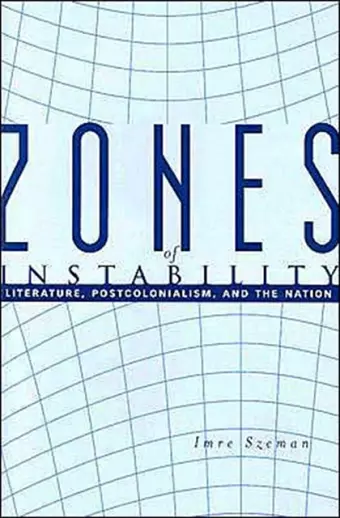Zones of Instability
Literature, Postcolonialism, and the Nation
Format:Hardback
Publisher:Johns Hopkins University Press
Published:3rd Feb '04
Currently unavailable, and unfortunately no date known when it will be back

Szeman's framework defamiliarizes the platitudes and pieties we associate with the invocation of such names as Naipaul, James, and Achebe. This is a book that will stir debate in the best sense. -- Peter Hitchcock, City University of New York Tightly written, boldly argued, and politically sophisticated, this is a major intervention in the study of postcolonial literature and globalization. Szeman retools the problem of the nation as it is usually understood in the study of national literatures, ripping out its Romantic 'soul' and replacing that with the much more concrete and workable concept of the zone. It's an exciting project with enormous consequences, and it should be widely read. -- Caren Irr, Brandeis University
He finds that the "nationcan be read as that space in which literature is thought to be able to conjoin two things that history has separated-the writer and the people.Attempts by writers and intellectuals in former colonies to create unique national cultures are often thwarted by a context of global modernity, which discourages particularity and uniqueness. In describing unstable social and political cultures, such "third-world intellectuals" often find themselves torn between the competing literary requirements of the "local" culture of the colony and the cosmopolitan, "world" culture introduced by Western civilization. In Zones of Instability, Imre Szeman examines the complex relationship between literature and politics by exploring the production of nationalist literature in the former British empire. Taking as his case studies the regions of the British Caribbean, Nigeria, and Canada, Szeman analyzes the work of authors for whom the idea of the"nation" and literature are inexorably entwined, such as Chinua Achebe, Wole Soyinka, C.L.R. James, Frantz Fanon, and V.S. Naipaul. Szeman focuses on literature created in the two decades after World War II, decades in which the future prospects for many colonies went from extreme political optimism to extreme political disappointment. He finds that the "nation" can be read as that space in which literature is thought to be able to conjoin two things that history has separated-the writer and the people.
Szeman speaks softly (and subtly), but as a leading-edge theorist of postcolonial literature and cultural studies he has earned the intellectual authority that underlies the present bold project. Choice 2004 Offers an interesting and valuable argument. -- Chelva Kanaganayakam University of Toronto Quarterly 2007
ISBN: 9780801868030
Dimensions: 229mm x 152mm x 24mm
Weight: 458g
264 pages